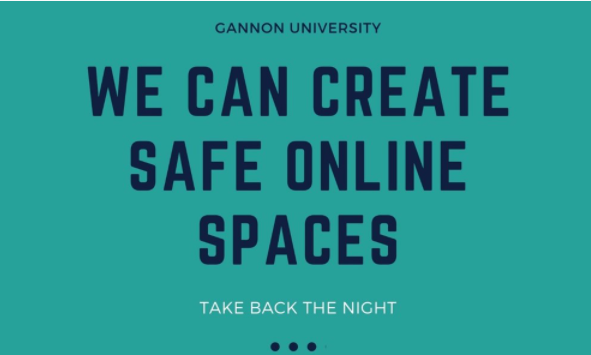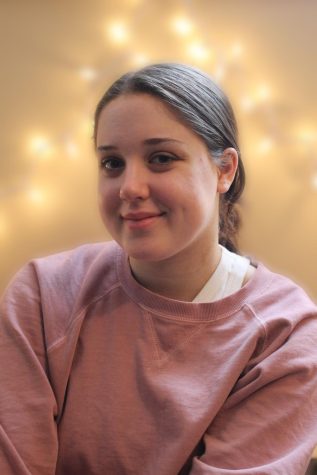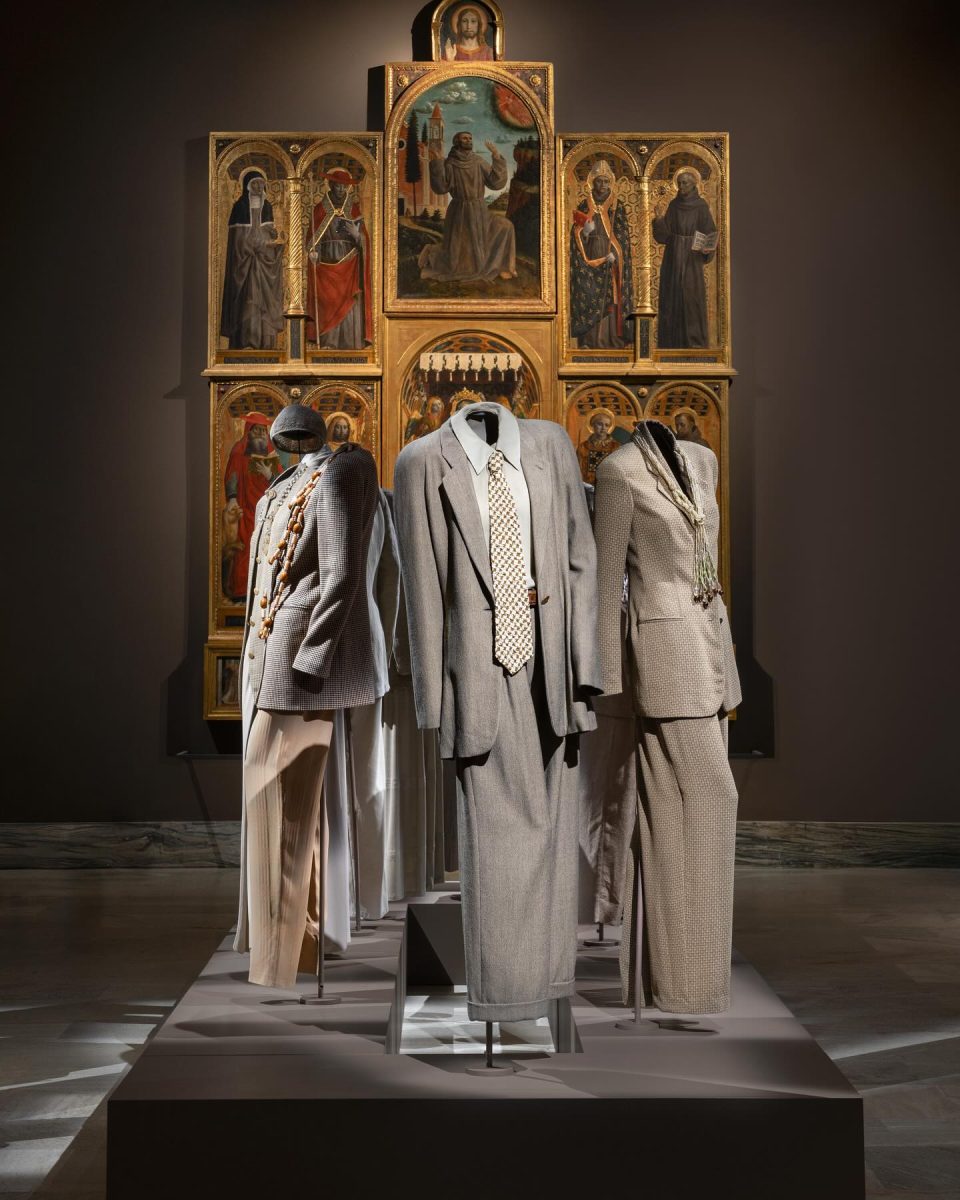Students “Take Back the Night” in annual awareness event
Sexual assault awareness event attempts to normalize conversations around the issue.

“Take Back the Night” will occur at 6:30 p.m. Thursday in the Yehl Ballroom via Zoom. The event is important to help normalize conversations and education about sexual assault, which is the first step in eradicating sexual violance.
April 20, 2021
“Take Back the Night,” an event to raise awareness for sexual assault, will be held at 6:30 p.m. Thursday in the Yehl Ballroom, with a Zoom option.
The event will emphasize the importance of education regarding sexual assault.
Sue Majocka, director of Student Accountability and Title IX Student Development and Engagement at Gannon University, said that RAINN (Rape, Abuse, Incest National Network) reports that college women between the ages of 18 and 24 are three times more likely to be sexually assaulted than women of all ages. RAINN also reports that sexual assault by a stranger occurs only 28% of the time, as most of the time the perpetrator is someone the victim knows.
Majocka said that’s been her experience as well.
“What I have encountered over 20 years in higher education is that the majority of the sexual assault is facilitated by someone the individual knows as an acquaintance or someone they are dating,” Majocka said.
“Most sexual assaults reported involve a lack of consent and in most cases alcohol is involved by one or both parties. Not all students come into college with a clear understanding of consent.”
Sara Nesbitt, program coordinator for the Center for Social Concerns and Global Exploration, said this event is important in reducing the stigma associated with victims of sexual assault, especially on college campuses.
“‘Take Back the Night’ is important to help normalize conversations about sexual assault, because being able to talk about it is the first step to eradicating sexual violence,” Nesbitt said.
Lexi Barton, a freshman occupational therapy major, also said that talking openly about sexual assault is the first step in reducing the stigma. Barton herself is a victim of sexual assault.
“Talking about it and bringing the necessary attention to it will make so many students on campus feel safer and know that they have somewhere to go when dealing with this type of situation,” Barton said.
Barton also said that this event is imperative because of the prevalence of sexual assault on college campuses.
“It’s something that you don’t want to think about when coming to college, but it is something that all students should be aware of,” Barton said. “It’s sad to think about how many of my friends have gone through this and even more sad to think about how many people that I don’t know have gone through it as well.”
Barton also said that some people have difficulty understanding the issue of sexual assault because they have not experienced it. “Take Back the Night” will help put this issue in perspective.
“Not everyone has been impacted by rape culture, which causes difficulty understanding the full effects of it or what its influence looks like in people,” Barton said.
Nesbitt also hopes that this event will inspire victims to report their assault in order for their perpetrators to receive justice.
“It can also support bystanders to be more vocal in speaking out against this behavior – and while many people will not be bystanders to assault, almost everyone will see people use sexually violent or dismissive language, which is the first step to worse behavior,” Nesbitt said.
Barton said that, from firsthand experience, she knows how difficult it can be to report instances of sexual assault. As a result, she did nothing.
“I remember feeling like I had no one to go to and not knowing how to report it to the university,” Barton said. “I think it is important to change how sexual assault is handled on campus. Where and whom to go to for a situation like this needs to be advertised in a much better fashion, so people going through this know where to get the needed help.”
Education about sexual assault must go beyond definition and prevention, according to Barton. She said it must also include information about what to do if you have been sexually assaulted, and how to receive the necessary support and resources.
“The university requires that all members of a sports team watch a video on rape culture, explaining what it looks like and how to prevent it, but we are not getting videos about how to handle this situation after it happened,” Barton said. “We need videos and education for the victims, not just education to the students explaining how sexual assault is bad.”
Les Fetterman, the director of Campus Police and Safety, and Majocka said that the university encourages reporting by providing multiple avenues to do so.
Some of these include the LiveSafe app, Police and Safety, resident directors and advisers, and Gannon faculty and staff. They emphasized the importance of the safety of those involved, and that they get the medical attention they need.
“Take Back the Night” is not exclusive; it is directed toward everyone, not just women.
“Although many people think of sexual assault as being a crime committed against women, men and trans individuals are sexually assaulted as well, and everyone knows someone who has been victimized,” Nesbitt said.
Nesbitt also emphasized that sexual assault is not limited to physical acts of violence.
“Receiving unsolicited pictures or messages, or having your private pictures shared without your consent is just as illegal and damaging,” Nesbitt said.
Above all, Nesbitt hopes that all students, but especially victims of sexual assault and violence, will feel supported.
“If you have been a victim, it isn’t your fault and there are services available to support you,” Nesbitt said. “If someone you care about is a victim, we will support you in supporting them.”
Barton hopes the same thing for herself and others.
“We all know who to call when we’re feeling sick and have been exposed to the virus, but we do not know where to turn when we’re feeling a loss of control and fear,” Barton said.
“As a strong woman who has gone through this and has needed resources that I was not provided with, I am pleading that we work together as a university to spread awareness and knowledge of resources for those who have experienced sexual assault.”
ANNA MALESIEWSKI





